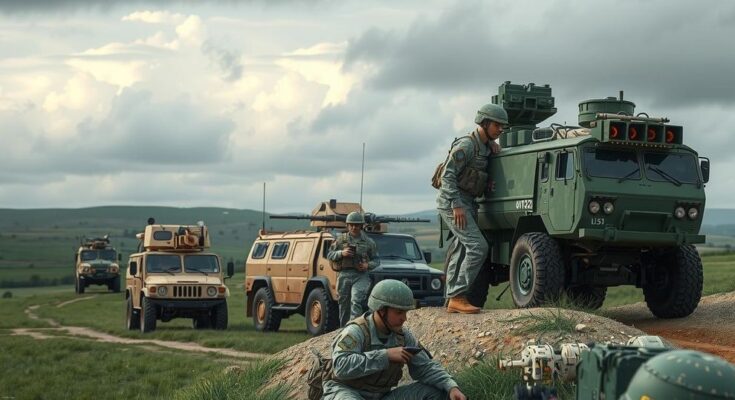Uganda has deployed additional forces to South Sudan amid rising conflict, reaffirming its commitment to regional stability under “Operation Mlinzi wa Kimya.” Colonel Chris Magezi confirmed the deployment following clashes in Upper Nile State. Minister Makuei defended the intervention citing a historical military pact, while opposition activists expressed concern over supporting President Salva Kiir’s government. The crisis continues to escalate as fighting deepens between government troops and the White Army militia.
On March 20, 2025, Uganda announced the deployment of additional military forces to South Sudan under “Operation Mlinzi wa Kimya” in response to escalating violence between government forces and armed groups. This troop movement comes amid renewed political turmoil in Juba and fighting in Upper Nile State. Colonel Chris Magezi, the acting army spokesman, confirmed Uganda People’s Defence Force (UPDF) commitments to regional stability and support for South Sudanese government forces.
The recent briefing for South Sudan-bound troops was conducted by UPDF Commander Land Forces, Lt. Gen. Kayanja Muhanga, who emphasized the importance of vigilance in the mission ahead. This operation initially commenced on March 11, 2025, with the insertion of special operations forces through Juba International Airport, followed by additional reinforcements that crossed the Uganda-South Sudan border.
Brig. Gen. Anthony Mbuusi Lukwago, a seasoned officer with experience in counterinsurgency operations, leads the command of this military initiative. The Ugandan government’s ongoing military presence in South Sudan has led to considerable regional debate; however, Minister of Information Michael Makuei Leuth defended the intervention, referencing a longstanding bilateral military agreement made to combat threats, such as the Lord’s Resistance Army (LRA).
Minister Makuei asserted that the UPDF’s current presence is an extension of this military pact, stating that the forces dispatched to Juba are intended to support the South Sudan People’s Defence Force (SSPDF). In contrast, opposition activists have raised concerns that Uganda’s actions primarily serve to reinforce President Salva Kiir’s administration amid heightened tensions with opposition forces.
General Muhoozi Kainerugaba, Uganda’s Chief of Defence Forces, remarked that any challenge to President Kiir’s rule would be deemed a declaration of war against Uganda. As stated in his remarks on social media, “We the UPDF only recognize one President of South Sudan, H.E. Salva Kiir… Any move against him is a declaration of war against Uganda.”
The crisis in South Sudan intensified due to new clashes between government troops and the White Army, a prominent Nuer militia implicated in the country’s deadliest conflicts. Notably, a UN helicopter was reportedly attacked last week, resulting in one crew member’s death alongside a high-ranking South Sudanese general, prompting Minister Makuei to demand that the White Army vacate government-declared military zones or face repercussions.
Makuei further stated, “Any civilian who is in a military zone and refuses to leave will be treated accordingly. If you continue to stay in those areas, then you are a negative force, and the necessary force will be used against you.” Meanwhile, the government ordered the White Army to relocate from assembly areas, particularly in conflict-prone areas like Nelson, which have been hotspots.
In light of these developments, Uganda’s National Resistance Movement (NRM) Parliamentary Caucus expressed its support for the UPDF deployment, highlighting the necessity of preventing further instability. However, the United Nations and other international stakeholders have yet to provide an adequate response to Uganda’s justification based on the historic anti-LRA pact.
Uganda’s recent military deployment to South Sudan underscores the complex dynamics of regional security amidst escalating conflict. While the Ugandan government insists the move is rooted in a historical military pact intended for mutual defense, opposition sentiments reveal concerns regarding support for the South Sudanese government under President Salva Kiir. With ongoing clashes between armed groups and government forces, the situation remains volatile, demanding careful attention from international actors.
Original Source: chimpreports.com




